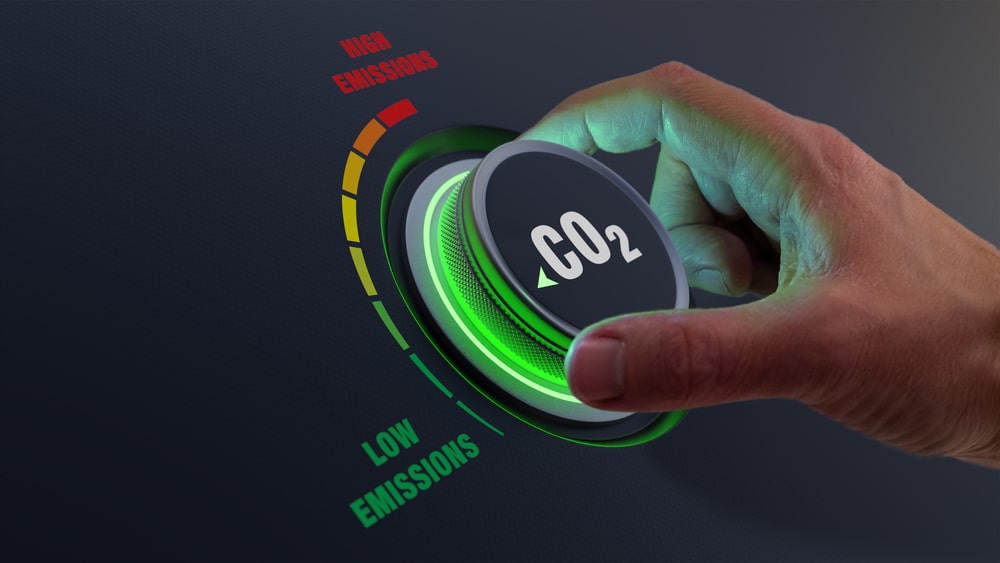The Securities and Exchange Commission is in the process of finalizing a rule requiring public companies to provide investors with information on the risks climate change poses to their prospective financial performance beginning next year.
The proposed rule also would require greenhouse gas emissions disclosures, including on companies’ direct emissions, e.g., from their own facilities and vehicles; their indirect emissions, e.g., those from on-grid power plants in their area; and, most expansively, emissions from upstream and downstream activities in their value chains, that is, the emissions from their suppliers and customers.
While quantifying firm-specific risks from climate change will entail substantial compliance costs, it is the requirement that a company report emissions from its own processes and those in its supply chain that invites sharpest scrutiny. In what respect do a company’s emissions impose risk to the company itself? After all, the operative claim against emitting greenhouse gases is that to do so is to externalize costs, foisting onto the public at large waste management expenses for which the company in question ought properly to account. While this charge may be grounds for legislation, the SEC fails to explain why externalized costs would redound to the disadvantage of the externalizer and, thus, to merit disclosure to investors.
Recognizing this, the SEC discards its customary standard of “materiality,” which considers a piece of information relevant if there is substantial likelihood that a reasonable investor would consider it important to buying and selling decisions. This approach diverges from the SEC’s 2010 interpretative release on climate change matters. With the proposed rule, the SEC claims the requirements advance some notion of “protection” for investors. Strangely, the SEC purports to maintain the ordinary materiality standard with respect to emissions from upstream and downstream activities in companies’ value chains, so-called “Scope 3” emissions over which a company has little control and from which it will incur no direct, firm-specific costs. Hester Peirce, a dissenting SEC commissioner, makes the common-sense observation that the materiality of these emissions is nothing more than a fiction.
Another possibility one can infer from its postulation of “transition risk” is that the SEC foresees more stringent climate legislation or regulation ahead and is suggesting that current emitting practices could find themselves laid directly on Washington’s chopping block. But protecting investors from Congress certainly was not Congress’s own intent in authorizing the SEC to regulate securities.
Whereas the risk to a company of its own emissions and the risk of looming tighter limits are amorphous, investors certainly have a material interest in the resilience of a company’s physical stock. Will drought cut the output of a public company’s hydroelectric dam? Will a port face damage from increasing storm surges? The materiality of such climate impacts is evident, but it also serves to undermine by comparison the alleged materiality of the emissions in a company’s supply chain. The manifest purpose of the emissions inclusion in the new SEC rule is not to protect investors, but to execute President Joe Biden’s “government-wide approach” to climate change and spur economy-wide decarbonization. (READ MORE from Jordan McGillis: The Carbon Tax Pipe Dream)
The recent Supreme Court decision in the case of West Virginia v. EPA presents a new, perhaps unexpected, hurdle to the SEC’s climate disclosure rule, and to the Biden approach more broadly. The Court ruled in West Virginia that the Clean Air Act does not authorize the environmental regulator to reconstruct America’s electricity grid from its Washington headquarters. Justice Neil Gorsuch, in a concurring opinion, explicated the major questions doctrine truncating executive branch license to regulate on issues of great economic consequence where legislative intent is absent. As Paul Atkins, formerly of the SEC, and Paul Ray, formerly of the White House Office of Information and Regulatory Affairs, summarized in the pages of the Wall Street Journal, “Agencies may not lightly presume that the legislature has delegated to them the most important policy questions of our day and simply decide those questions themselves.”
Will the arrival of the major questions doctrine on the judicial scene upend the SEC’s plans? Todd Phillips, lead corporate governance analyst at the Center for American Progress, says no, writing in the Hill that the SEC proposed rule is of little consequence. Against the charge that it verges on major questions, Phillips doth protest, “nothing could be further from the truth,” arguing that the rule would simply direct companies to provide material information consistent with investors’ interests.
Such a vehement denial can only but elicit Shakespearean skepticism.
If it has its way, the SEC will become a leading actor in climate policy, reforming public companies’ behavior from the inside out and driving decarbonization. Such ends reside further beyond the outer stretches of the SEC’s mandate than the grid plan did vis-à-vis EPA’s. By demanding disclosure of ambiguous emissions-related information, the Securities and Exchange Commission deigns to play the part of climate change regulator, a major role for which it was not cast.
Jordan McGillis is a policy analyst at the Manhattan Institute, a free market think tank. He was formerly deputy director of policy at the Institute for Energy Research and resides in Southern California.
























